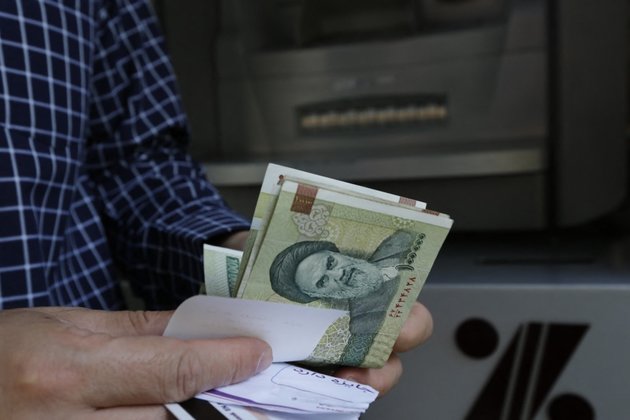

dubai, united arab emirates – Iran’s troubled currency fell to a record low against the U.S. dollar on Saturday amid the country’s increasing isolation and possible Europe Union sanctions against Tehran’s Revolutionary Guards or some of its members.
Ties between the EU and Tehran have deteriorated in recent months as efforts to revive nuclear talks have stalled. Iran has detained several European nationals and the bloc has become increasingly critical of the violent treatment of protesters and the use of executions.
The EU is discussing a fourth round of sanctions against Iran, and diplomatic sources have said members of the Revolutionary Guards will be added to the bloc’s sanctions list next week. But some EU member states want to go further and classify the Guards as a terrorist organization.
The dollar was selling for as much as 447,000 rials on Iran’s unofficial market on Saturday, compared with 430,500 the previous day, according to the foreign exchange site Bonbast.com.
The rial has lost 29% of its value since nationwide protests following the death in police custody of Mahsa Amini, a 22-year-old Kurdish Iranian woman, on September 16.
The unrest has posed one of the biggest challenges to theocratic rule in Iran since the 1979 Islamic Revolution.
The economic Ecoiran website blamed the continued fall of the rial on an apparent ‘global consensus’ against Iran.
‘Increasing political pressures, such as placing the Revolutionary Guards on a list of terrorist organizations, and imposing restrictions on Iran-linked ships and oil tankers … are factors pointing to a global consensus against Iran, (which may affect) the dollar’s rate in Tehran,’ Ecoiran said.
The European Parliament called on Wednesday for the EU to list Iran’s Guards as a terrorist group, blaming the powerful force for the repression of protesters and the supply of drones to Russia. The assembly cannot compel the EU to add the force to its list, but the text was a clear political message to Tehran.
Panama’s vessel registry, the world’s largest, has withdrawn its flag from 136 ships linked to Iran’s state oil company in the last four years, the country’s maritime authority said this week.
Iran’s central bank governor Mohammad Reza Farzin on Saturday blamed the fall of the rial on ‘psychological operations’ that Tehran says its enemies are organizing to destabilize the Islamic Republic.
‘Today, the central bank faces no restrictions in terms of foreign currency and gold resources and reserves, and media deceit and psychological operations are the main factors behind the fluctuation in the free exchange rate,’ state broadcaster IRIB cited Farzin as saying.
Facing an inflation rate of about 50%, Iranians seeking safe havens for their savings have been trying to buy dollars, other hard currencies or gold.
24World Media does not take any responsibility of the information you see on this page. The content this page contains is from independent third-party content provider. If you have any concerns regarding the content, please free to write us here: contact@24worldmedia.com

A Brief Look at the History of Telematics and Vehicles

Tips for Helping Your Students Learn More Efficiently

How To Diagnose Common Diesel Engine Problems Like a Pro

4 Common Myths About Wildland Firefighting Debunked

Is It Possible To Modernize Off-Grid Living?

4 Advantages of Owning Your Own Dump Truck

5 Characteristics of Truth and Consequences in NM

How To Make Your Wedding More Accessible

Ensure Large-Format Printing Success With These Tips

4 Reasons To Consider an Artificial Lawn

The Importance of Industrial Bearings in Manufacturing

5 Tips for Getting Your First Product Out the Door